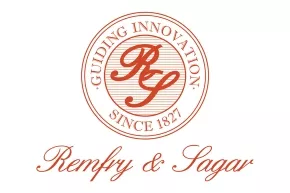The 'Trade Marks Rules, 2017' were notified and came into force on March 6, 2017. They replace the Trade Marks Rules, 2002 – substantial amendments to which had been proposed in November 2015. Primarily, the new Rules aim to simplify procedures - here are some key changes:
1. Official Fees:
- The fee for all activities has increased substantially – with a 100% increase for filing applications and renewing registered marks; however, 'individuals', 'start-ups' and 'small entities' can avail a 50% discount in filing fees.
- In a further push towards digital communication, the Rules offer a 10% discount in fee (for all activities) for filings made electronically in place of paper filings.
- Earlier, if a specification for a class exceeded 500 characters, an excess space fee was to be paid for every character beyond the first 500. The excess space fee provision has been removed under the new Rules.
2. New Forms:
- In a complete overhaul, the 74 different Forms prescribed under the old Rules for activities connected with the life cycle of a trade mark – filing, registration, renewal, oppositions, assignments etc. – have been replaced with 8 comprehensive Forms. For instance, whether a trade mark is a standard/ collective/ certification or series mark, whether it covers a single class or multiple classes, whether it bears a priority claim or does not, one Form will accommodate all these variations at the time of filing the application.
3. Statement of Use:
- If a trade mark is in use prior to its filing, an applicant must file an affidavit testifying to such use along with supporting documents.
- The statement as to use of a mark, once made, will be final.
4. Expedited Processing of an Application:
- Expedited prosecution of a trade mark application – from examination until registration, including opposition proceedings (if any) - may be requested. Earlier, there was provision only for expedited examination.
- However, the Registrar may limit the number of applications it will accept for expedited processing by prescribing a limit in the Trade Marks Journal.
5. Well-known Trade Marks:
- A new Rule allows for determination and inclusion of trade marks on a "list of well known trademarks". Any person, by filing an appropriate form with fees (INR 1,00,000) along with a Statement of Case supported by documentary evidence, can request the Registrar to determine its mark as 'well-known'.
- To determine whether a mark is 'well-known', the Registrar shall take into account pertinent provisions under the Trade Marks Act, 1999.
- The Registrar may also invite objections from the general public before determining a mark 'well-known'.
6. Sound Marks:
" Specific provisions have been introduced for sound marks outlining criteria/ procedure for registration. Along with a graphical representation of its notation, the reproduction of a sound mark has to be submitted in a MP3 format not exceeding a 30 second length, recorded on a medium that allows for clear and audible replaying.
7. Oppositions/ Cancellations:
- If prior to 'formal service' of a Notice of Opposition by the Trade Marks Office (TMO), an applicant downloads the said notice from the TMO website and files a counter statement, the requirement of formal service stands waived and the matter proceeds further.
- Time for filing 'evidence in support of opposition' and 'evidence in support of application' is two months. Time for filing 'evidence in reply' is one month. All timelines were earlier extendible by one month which is no longer the case.
- Each party can apply for a maximum of two adjournments of a hearing.
- In cancellation actions, if a registered proprietor does not file a counter statement within the prescribed time period, the applicant applying for cancellation can file evidence without waiting for the Registrar's formal intimation. Also, an impugned registration will not be cancelled simply because its registered proprietor does not file a counter statement within time.
- In uncontested cases, if an applicant/ opponent does not want to pursue an application/ opposition, it should be specifically withdrawn and not abandoned; otherwise the Registrar can award costs which would be in excess of what it would cost to formally withdraw the application/ opposition in question.
8. Renewal:
- A request to renew a trade mark can be filed one year prior to the date on which renewal falls due. Earlier, such filing was possible only six months prior to the renewal deadline.
9. Assignments:
- Previously, an application to record assignment invited differential fees depending on the time that had elapsed between the change in title and the date on which the application was being filed at the TMO to record the change. All assignment requests will now attract a flat fee. Also, documentation is less onerous as certified copies of certain documents may now be accepted in place of originals.
10. Hearings:
- Provision for attending hearings through video conferencing or other audio visual communication devices has been introduced.
11. Agency:
- In case of revocation of authorisation of agent by an applicant or opponent, or withdrawal by an agent from any proceedings, the applicant or opponent must provide a fresh address for service in India within a period of two months. If not, the application/ opposition will be deemed abandoned.
To access the text of the Trade Marks Rules, 2017, click here.
The content of this article is intended to provide a general guide to the subject matter. Specialist advice should be sought about your specific circumstances.
